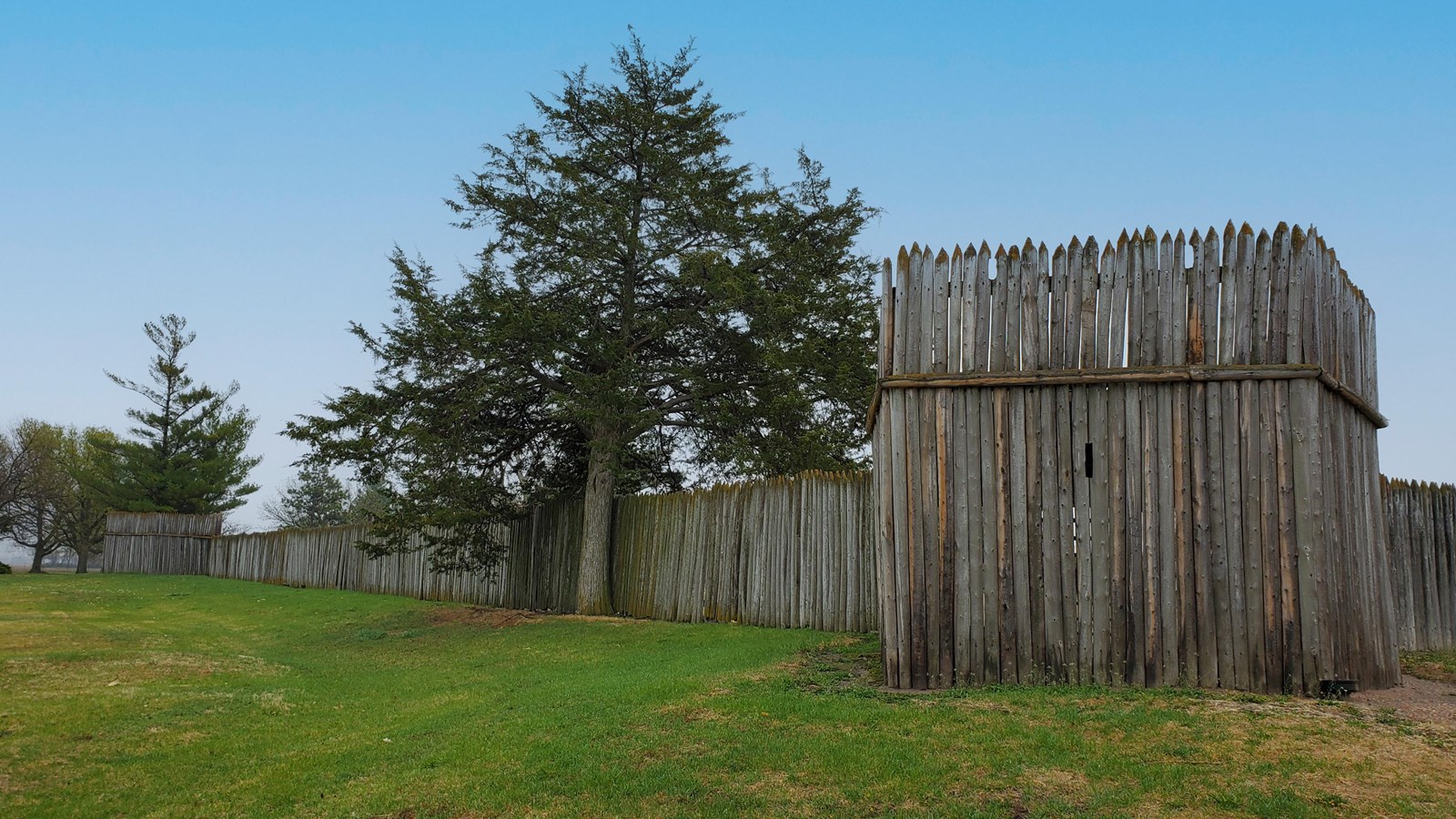Last updated: June 4, 2025
Place
Fort Kearny State Historical Park

NPS Photo
Gifts/Souvenirs/Books, Historical/Interpretive Information/Exhibits, Information, Picnic Table, Restroom, Trailhead
Pony Express Nebraska No. 14 Station
(Fort Kearney / Fort Kearny) (the actual XP station was not inside the garrison)
Emigrant Remarks
J. Goldsborough Bruff recorded his impressions on June 17, 1849,
"I visited the Fort . . . . This place is as yet merely the site of an intended fort; it has some adobe embankments, quarters of adobe & frame, and a number of tents & sheds. Is on the bank of the Platte, where Grand Island makes a narrow branch of the river between it and the shore."
Site Information
Location (Southeast of Kearney, Nebraska)
Today, the park offers an interpretive center with trail-era artifacts, exhibits on the fort's history, uses over the years, and its residents. In addition, there are 40 acres of grounds with walking paths and reconstructed sod and adobe buildings. Modest admission is charged; Nebraska state park passes can be purchased at the interpretive center.
More Site Information
Oregon National Historic Trail
California National Historic Trail
Mormon Pioneer National Historic Trail
Pony Express National Historic Trail
